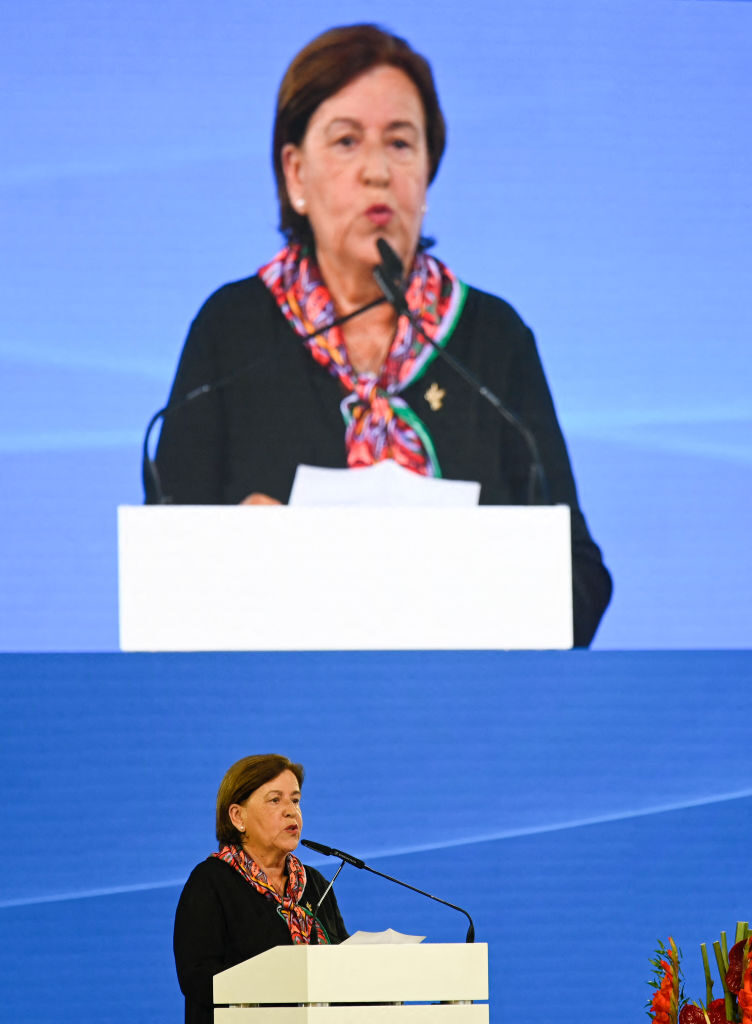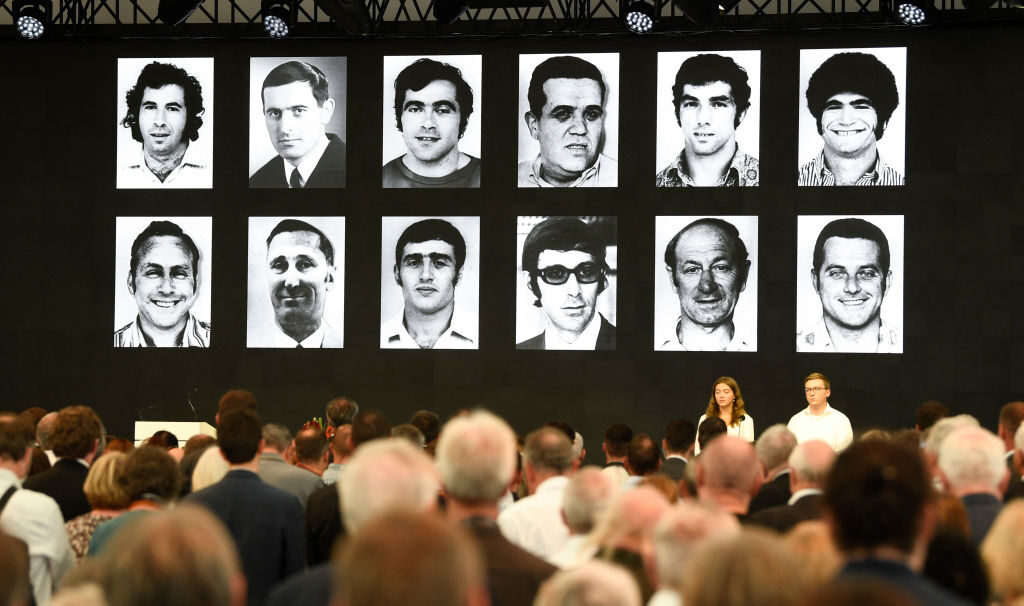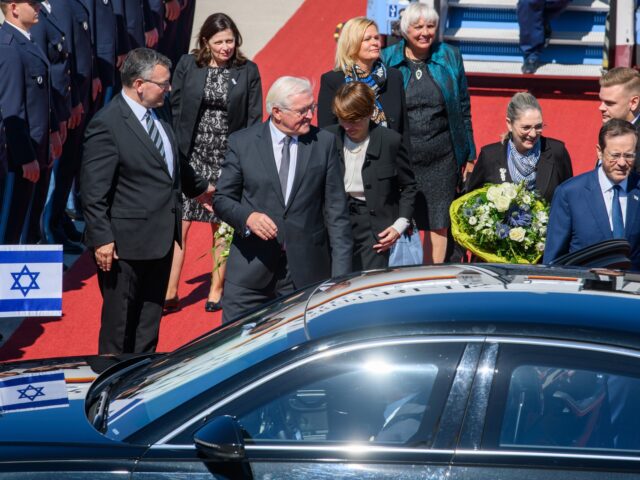Germany and Israel’s presidents on Monday marked 50 years since the 1972 Munich Olympics massacre, which included a public acknowledgement of Germany’s role in the tragedy which saw 11 Israeli athletes killed by Palestinian terrorists.
Family members of the victims had initially planned to boycott the event after Germany at first refused to pay what they had demanded by way of compensation.
But last week a deal was finally reached in which Germany would provide $28 million to the families.
Germany’s President Frank-Walter Steinmeier said Sunday it was “shameful” that it had taken such a long time for Berlin to come to the agreement.
“For far too long, we have refused to acknowledge the pain of the bereaved,” said Steinmeier alongside his Israeli counterpart Isaac Herzog.
“And for far too long, we have not wanted to acknowledge that we also bear our share of responsibility. It was up to us to ensure the safety of the Israeli athletes,” he said.
Today marks 50 years since 11 members of the #Israeli Olympic team were taken hostage and eventually murdered by the #Palestinian terrorist group "Black September" at the 1972 Olympic Games in Munich. This heinous attack became known as the #MunichMassacre. We remember.🕯️ pic.twitter.com/9B9kfgvhHg
— StandWithUs (@StandWithUs) September 5, 2022
Munich mayor Dieter Reiter apologized for the “momentous mistakes” made.
“I am sorry for that and I apologize for the fact that after the attack, what would have been demanded by humanity was simply not done — admitting the mistakes and taking responsibility for them.”
On September 5, 1972, Palestinian terrorists from the Black September terror group, which was linked to Palestinian Authority President Abbas’ ruling Fatah party, broke into the Olympic Village where the Israeli athletes were staying, killing two and taking others hostage.

The widow of killed fencing coach Andre Spitzer and representative of the relatives of the victims Ankie Spitzer speaks during a ceremony to mark the 50th anniversary of an attack on the 1972 Munich Olympics, at the Fuerstenfeldbruck Air Base, southern Germany, on September 5, 2022. (THOMAS KIENZLE/AFP via Getty Images)
They demanded the release of 234 Palestinians in Israeli prisons as well as members of the German leftwing Baader Meinhoff terror group in German jails.
The rest of the 11 hostages and a police officer were killed during a botched rescue attempt by West German police.
According to AFP, the games were meant to open the door to renewed Israel-German relations, a little over a quarter century after Holocaust, but instead caused a deep chasm between the two countries.
Weightlifter and father of three Yossef Romano was murdered by Palestinian terrorists while representing Israel at the Munich Olympics in 1972.
Today, his wife Ilana and their grandchildren honor his memory in Munich, 50 years later.
May the memory of the victims be a blessing. pic.twitter.com/JKZ6hWSrmA
— Israel ישראל (@Israel) September 5, 2022
In 2012, Israel released 45 official documents on the murders, which took the German security services to task for not making “a minimal effort to save human lives.”
The victims’ families for years have attempted to obtain an apology from Germany, and recently turned down what they called a “degrading” offer of compensation from the German government.
Herzog at the ceremony said the families had “hit a wall” whenever they tried to raise the issue with Germany or even with the International Olympic Committee.
“I think there was tragic suppression here,” he said, and according to AFP, went on to list the litany of failings that were “inhuman and incomprehensible” such as “the fact that the hostages were being led to slaughter and the Games went on”.

Portraits of the victims are displayed at the end of a ceremony to mark the 50th anniversary of an attack on the 1972 Munich Olympics, at the Fuerstenfeldbruck Air Base, southern Germany, on September 5, 2022. (THOMAS KIENZLE/AFP via Getty Images)
Then-IOC president Avery Brundage had declared that “the Games must go on” after a brief hiatus.
Herzog expressed his hope that “this painful episode to a place of healing”.
“I hope that from now on, we shall continue to remember, invoke, and most importantly reaffirm the lessons of this tragedy, including the importance of fighting terror, for future generations,” he said.

COMMENTS
Please let us know if you're having issues with commenting.